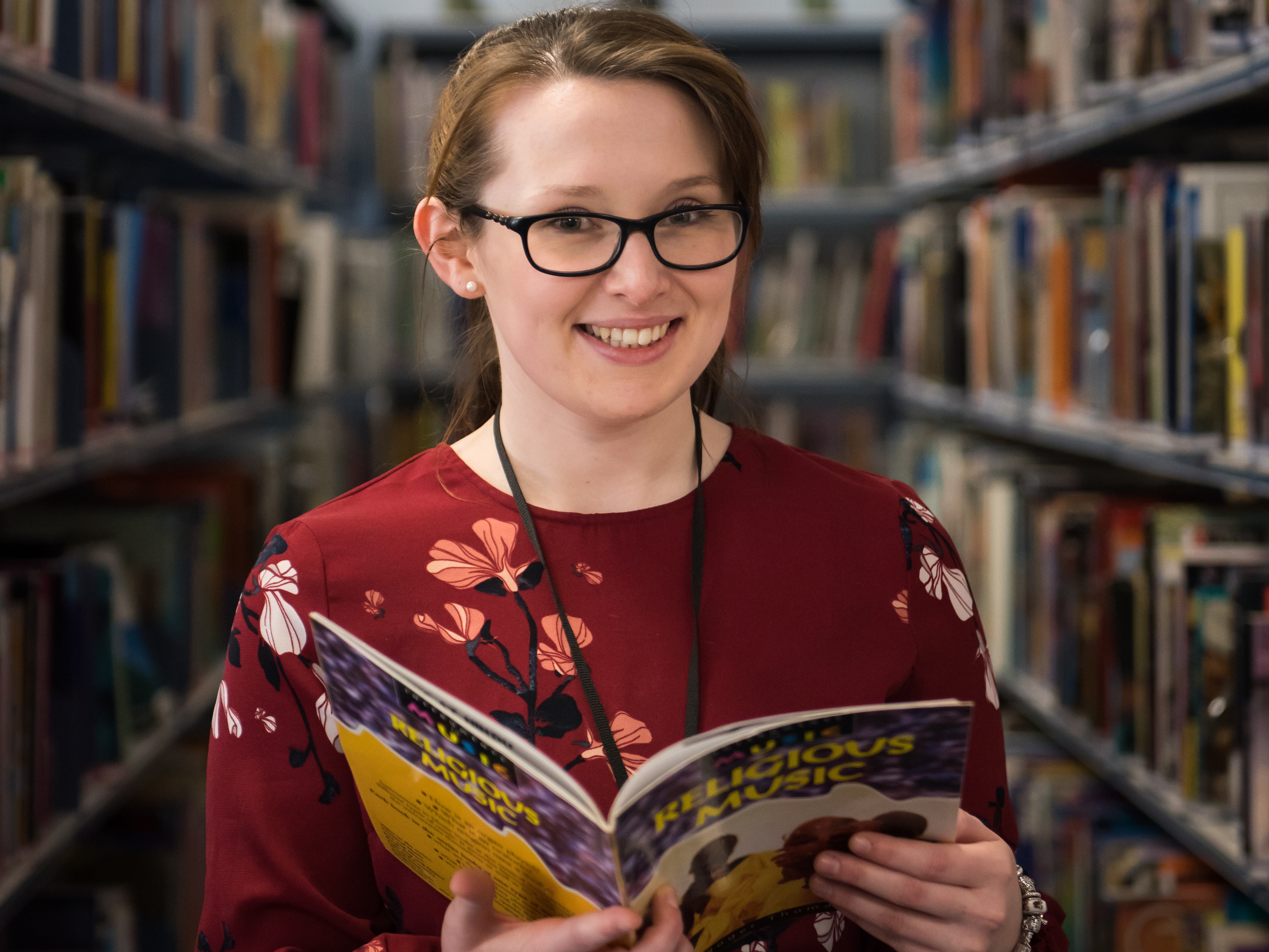Search and apply for our courses on the .gov website: University of Cambridge (C05)
How enthusiastic and encouraging the lecturers are and how much they want us to become the best teachers we can be. (Sally R, 2020)
The highly regarded Cambridge Religious Studies PGCE integrates cutting-edge research in the study of religions, philosophy and ethics with the very best of contemporary classroom practice. The aim of the course is to facilitate and foster the PGCE students’ practical excellence across the professional requirements of the UK Teacher Standards, through gaining expertise of a range of pedagogical strategies and preparing the foundations for them to be future leaders of RE.
The course engages with the full panorama of scholarship and educational practice relevant to RE as defined by legislation and government guidelines. The course therefore includes non-religious perspectives, such as secular humanism, as well as the principal religious traditions represented in Great Britain: Christianity, Islam, Judaism, Sikhism, Hinduism and Buddhism. PGCE students further benefit from our strong links with the wider University and its world-leading research centres in theology and interreligious dialogue. Successful completion of the course results in both the PGCE and Qualified Teacher Status. Many of our successful students then apply to complete the Cambridge Transforming Practice Master's in Education.
“Cambridge is unique, it’s a hugely academic university with some of the most cutting-edge research in the pedagogical approaches to the study of religion and what’s the most effective way of teaching the subject.” Joshua C, 2020

Who is this course for?
We welcome applications from candidates who have an undergraduate or postgraduate degree in theology, religious studies, philosophy or anthropology. We also encourage applications from graduates with a strong interest and robust subject knowledge in the study of religions and/or philosophy who have degrees in other arts, humanities or social science subjects including law, history, psychology or sociology.What will I study?
Our PGCE students have opportunities to enhance their specialist subject knowledge and gain practical expertise of a range of pedagogical strategies, equipping them to teach about Christianity, Islam, Judaism, Buddhism, Hinduism, Sikhism and non-religious worldviews from multi-disciplinary perspectives, and the teaching of philosophy and ethics.
Our Faculty-based workshops follow a carefully planned sequence, integrated with school placements, that facilitates the aims of the course: to foster practical excellence in relation to the Teacher Standards and prepare the foundations for our PGCE students to become future leaders of RE. The Course is split into three progressive phases:
In 'Religious Education: the subject and its curriculum' PGCE students focus on acquiring and embedding key skills and principles of teaching, such as lesson planning, devising learning activities, use of questioning, dialogic techniques and behaviour for learning. This introduction to the classroom craft is integrated with an exploration of the various kinds of pedagogical approach advanced for RE specifically. This is taught in conjunction with methods and pedagogy relating to teaching the six main world religions.
In 'Developing excellent classroom practice in RE' PGCE students build upon basic skills and knowledge, encouraging deeper reflection and interrogation of the processes of teaching and learning in RE including assessment, adaptive teaching and the study of how pupils learn. We continue to explore teaching and learning in relation to each of the six main religious traditions as well as non-religious perspectives.
The course culminates in preparing for the ECT years with a programme of enrichment and celebration in ‘Reflecting back, looking forward’.
As a professional qualification providing opportunity to excel against the Teacher Standards, and adhering appropriately to the requirements of the Initial Teacher Training and Early Career Framework, we facilitate PGCE students’ ability to apply insights gleaned from academic study in order that they may excel in professional classroom practice.’
How will I study it?
The course has been developed so each week conceptual thinking explored in our Faculty-based workshop sessions is complemented with practical activities in school.
“In our sessions there is a great balance between learning about teaching, and learning how to teach.” Hannah W, 2020

Advice for applicants
We recommend that all applicants spend at least one week in a Religious Education department of a non-selective state secondary school prior to application. If your previous experience is within faith schools, try to undertake at least a few days work experience/observation in a non-faith school before application.
You may also wish to revise your subject knowledge of not only world religions, but also philosophy and ethics. PGCE students are expected to cover these subjects in their school placements.
We welcome inquiries about the course, should you have any questions. If you are interested in what it is like to be an RE teacher, you may want to watch the ‘Teach RE Beyond the Ordinary’ promoted by Culham St Gabriel’s: https://www.teachre.co.uk/beyondtheordinary/
How the course prepares me for leadership roles?
Through curious and critical engagement with current research and debates within religious education, our PGCE students are well-equipped to become subject leaders and ambassadors for RE in the national teaching community. Within the course, PGCE students gain confidence in practical departmental leadership issues including curriculum design and using data to inform teaching. PGCE students from the Cambridge RS PGCE go onto a wide range of leadership roles including those at subject, whole-school and regional levels.

How does this fit in with the MEd?
The Faculty offers a one-year part-time Master of Education course. To be eligible to apply for the MEd course, PGCE students must pass all of the examined elements of the PGCE course, and there must be a maximum of three years between finishing the PGCE and starting the MEd course. Many of our students opt for the Transforming Practice route within the MEd.
For more information, visit the Master of Education (MEd) page.
